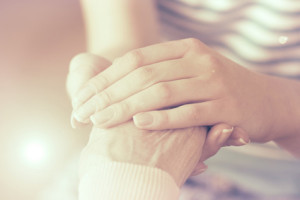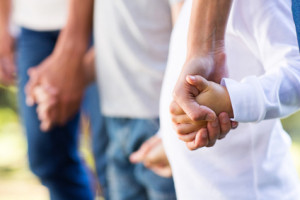- Calls to this hotline are currently being directed to Within Health, Fay or Eating Disorder Solutions
- Representatives are standing by 24/7 to help answer your questions
- All calls are confidential and HIPAA compliant
- There is no obligation or cost to call
- Eating Disorder Hope does not receive any commissions or fees dependent upon which provider you select
- Additional treatment providers are located on our directory or samhsa.gov
Nonprofits – Finding Recovery from Bulimia
Contributor: Leigh Bell, BA, writer for Eating Disorder Hope
 They were just 15 years old when Liana Rosenman and Kristina Saffran met in eating disorder treatment, where they supported each other through recovery. Together, they later founded Project HEAL (theprojectheal.org), a nonprofit organization to raise and grant money to others suffering with an eating disorder who want recovery but can’t afford treatment.
They were just 15 years old when Liana Rosenman and Kristina Saffran met in eating disorder treatment, where they supported each other through recovery. Together, they later founded Project HEAL (theprojectheal.org), a nonprofit organization to raise and grant money to others suffering with an eating disorder who want recovery but can’t afford treatment.
Finding Ways to Afford Treatment
A few organizations similar to Project HEAL exist to offset or completely cover the cost, which can be financially devastating, of eating disorder treatment. Insurance policies are not necessarily required to cover eating disorder treatment, and when they do, it can be for inadequate time and/or intensity.
Inpatient eating disorder treatment, which is commonly required, can cost $30,000 a month or more. Outpatient treatment, including seeing a therapist and a doctor, can cost more than $100,000 a year.
 The vast majority of Americans simply can’t afford it. Access to treatment is vital to recovery from an eating disorder. With treatment about 60 percent of people with eating disorders recover, according to Anorexia Nervosa and Related Disorders, ANRED, (http://www.anred.com); and without treatment up to 20 percent of people with a serious eating disorder die.
The vast majority of Americans simply can’t afford it. Access to treatment is vital to recovery from an eating disorder. With treatment about 60 percent of people with eating disorders recover, according to Anorexia Nervosa and Related Disorders, ANRED, (http://www.anred.com); and without treatment up to 20 percent of people with a serious eating disorder die.
After too many families, in an effort to save their loved ones, lost their homes and ran up mountains of debt, nonprofit organizations, like the Manna Fund (http://www.mannafund.org), have emerged. Manna Fund is a nonprofit organization founded almost 10 years ago by professionals specialized in the treatment of eating disorders.
Getting Adequate Treatment
 Through clinical and personal experience, these specialists too often saw people who needing help with an eating disorder but were unable to access adequate treatment due to having no insurance, inadequate insurance benefits, restrictive insurance coverage, and lack of or low reimbursement rates, according to the organization’s website.
Through clinical and personal experience, these specialists too often saw people who needing help with an eating disorder but were unable to access adequate treatment due to having no insurance, inadequate insurance benefits, restrictive insurance coverage, and lack of or low reimbursement rates, according to the organization’s website.
Manna Fund helps fund residential and inpatient treatment for eating disorders.
Kristen Haglund (http://kirstenhaglundfoundation.org), while traveling the country as Miss America 2008, heard many stories about men and women who recovered from an eating disorder after getting professional help.
Yet, Haglund also became aware of great treatment costs insurance often doesn’t pay. Soon after, she created the Kristen Haglund Foundation with the mission to provide hope, network, and financial help to those seeking treatment for and recovery from an eating disorder.
Other nonprofit groups exist to help those with bulimia and other eating disorders access treatment, and some focus on certain parts of the country. For example, the Kartini Foundation (http://www.kartinifoundation.org) started 15 years ago to help fund treatment for those (ages 6-21) with eating disorders in the Pacific Northwest, as well as fund and publish genetic and brain research related to eating disorders.
MentorCONNECT (mentorconnect-ed.org) is a nonprofit organization that pairs mentors, most of who are recovered at least one year from an eating disorder, with a mentee who is actively practicing an eating disorder but wants to recover.
 A study of this program analyzed 141 participants of MentorCONNECT, consisting of 34 mentors, 58 mentees who were matched with a mentor, and 49 mentees searching for a mentor. Those matched with a mentor showed greater improvement in 7 of 12 measurements of mental health, including better relationships; improved future outlook; and psychological, emotional, and physical well-being, than those without a mentor. Even the mentors reported improved recovery skills from the relationship.
A study of this program analyzed 141 participants of MentorCONNECT, consisting of 34 mentors, 58 mentees who were matched with a mentor, and 49 mentees searching for a mentor. Those matched with a mentor showed greater improvement in 7 of 12 measurements of mental health, including better relationships; improved future outlook; and psychological, emotional, and physical well-being, than those without a mentor. Even the mentors reported improved recovery skills from the relationship.
Other organization focus more on awareness for prevention of eating disorders and provision of research for those recovering from the illness.
Perhaps the largest of these is the National Eating Disorder Association, NEDA, (http://www.nationaleatingdisorders.org) with the mission to provide resources and support to individuals and families affected by eating disorders. NEDA is a wealth of information for anyone who loves someone with bulimia or any disorder.
With similar missions are the National Association of Anorexia Nervosa and Associated Disorders, ANAD, (http://www.anad.org) and ANRED.
The Eating Disorder Coalition, EDC, (eatingdisorderscoalition.org) is an advocacy organization spread awareness and education about eating disorders, in the hopes of prevention, as well as passing laws to require the education and greater insurance coverage of treatment for the illness.
Nonprofit support groups are also available at no cost for those struggling with bulimia. Nationally, Eating Disorder Anonymous (http://eatingdisordersanonymous.org) and Overeaters Anonymous (http://www.oa.org), both based on the widely known 12-step process, are available in most major cities, and if not, can be individually started.
Even if someone has the desire to recover from bulimia, he or she may not have the means to access treatment. However, many supportive, non-cost resources are available, telling us there’s no reason to give up.
Community Discussion – Share your thoughts here!
Have you or your loved one had a successful relationship with a disordered eating nonprofit? Who have you worked with and what advice do you have to share?
About the Author:
Leigh Bell holds a Bachelor of Arts in English with minors in Creative Writing and French from Loyola Marymount University in Los Angeles. She is a published author, journalist with 15 years of experience, and a recipient of the Rosalynn Carter Fellowship for Mental Health Journalism. Leigh is recovered from a near-fatal, decade-long battle with anorexia and the mother of three young, rambunctious children.
The opinions and views of our guest contributors are shared to provide a broad perspective of eating disorders. These are not necessarily the views of Eating Disorder Hope, but an effort to offer a discussion of various issues by different concerned individuals. We at Eating Disorder Hope understand that eating disorders result from a combination of environmental and genetic factors. If you or a loved one are suffering from an eating disorder, please know that there is hope for you, and seek immediate professional help.
Last Updated & Reviewed By: Jacquelyn Ekern, MS, LPC on October 9, 2015. Published on EatingDisorderHope.com

